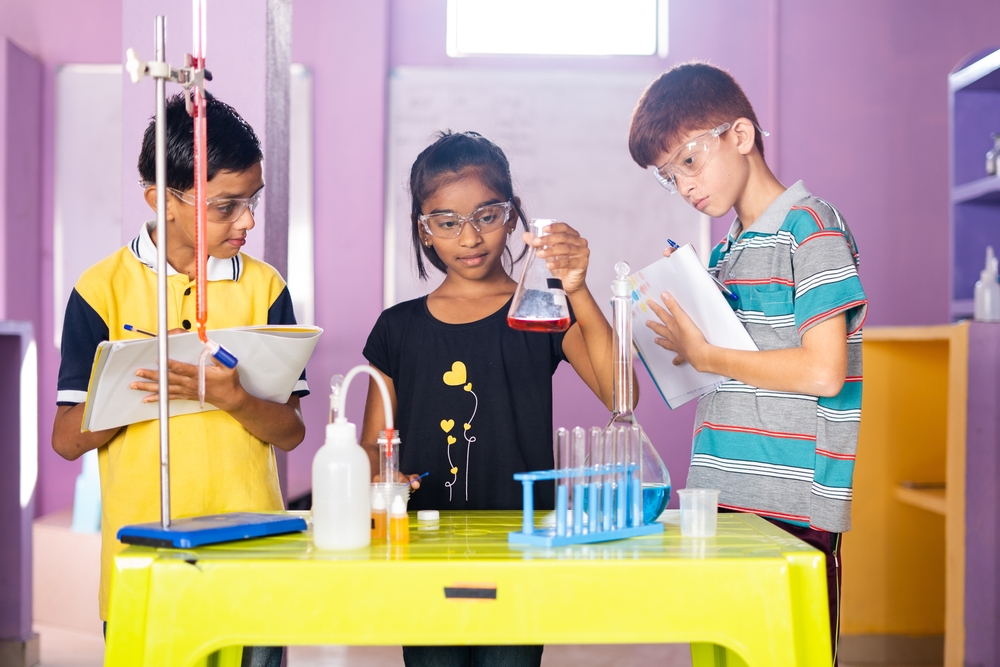Traditional teaching techniques are drastically changing in the dynamic field of
education to become more experiential and engaging. PBL leads this change, which
provides an educational model that puts practical, real-world experiences ahead of rote
memorization. This article provides an in-depth discussion of the many advantages of
project-based learning, which also highlights how it can help students develop into
lifelong learners and critical thinkers.
Discover how Project-Based Learning is more than just an instructional technique; it
transforms education into a field of meaningful and lasting learning opportunities.
Understanding Project-Based Learning
Students learn by actively examining issues and difficulties in the real world through
PBL, an engaging pedagogical technique. PBL replaces standard classroom approaches
with projects that demand teamwork, critical thinking, and problem-solving abilities
from students. These projects are frequently multidisciplinary, linking several fields and
simulating work done in professional contexts.
Students assume responsibility for their education by researching subjects and coming
up with answers. It also promotes a deeper comprehension. PBL improves practical
abilities like creativity and communication in addition to scholarly knowledge.
Education becomes more relevant and meaningful when it fosters a dynamic learning
environment that equips students for real-life circumstances.
Benefits of the Project-Based Learning
A dynamic educational technique that offers numerous advantages outside of standard
classroom settings is project-based learning or PBL.

Applying Knowledge in Real-World
PBL’s focus on the real-world application of knowledge is one of its main advantages.
Students work on real-world projects to actively connect with the material rather than
memorizing facts by heart. PBL guarantees that theoretical concepts find practical
application in tasks such as conducting scientific experiments, solving complicated
mathematical problems, etc. This method strengthens knowledge while reiterating that
education is a tool for resolving issues in the real world.
Cooperative Teamwork
Effective collaboration is frequently the key to success in the workplace. PBL
incorporates cooperative learning opportunities into its structure in recognition of this
fact. Students collaborate, contributing a variety of viewpoints and skill sets. In addition
to reflecting the collaborative atmosphere of many organisations, this also develops vital
interpersonal and communication skills. Students who learn to work well with others
outside of the classroom will benefit greatly from this skill as it will help them meet the
demands of teamwork in the workplace.
Developing a Growth Mindset
Project-Based Learning fosters a growth mindset by emphasizing the learning process
more than the final product. In a project-based setting, failures are seen as chances for
improvement, and the iterative nature of projects fosters resilience. Students who adopt
this new perspective will be better able to overcome obstacles and deal with uncertainty
in their academic and professional lives.
Promoting Habits of Lifelong Learning
Project-Based Learning fosters a love of learning outside of the classroom in addition to
its immediate academic advantages. PBL establishes the groundwork for a lifetime of
learning by encouraging inquiry, discovery, and curiosity. Pupils learn to search for
information independently and perceive learning as an ongoing process rather than a
final goal.

Cultivating Intrinsic Motivation
One of PBL’s unique selling points is its ability to increase the inherent drive of
students. Giving students the freedom to select projects that are in line with their
passions and areas of interest encourages engagement and a sense of ownership.
Students are driven by this internal motivation to learn more about the subject and to go
beyond the classroom.
Wrapping Up
Project-Based Learning is a revolutionary approach that shines brightly as education
evolves. PBL equips students to take an active role in their education by encouraging
critical thinking, collaboration, intrinsic motivation, coupling Learning to real-world
applications, developing 21st-century skills, improving retention, promoting lifelong
learning habits, and developing a growth mindset. Project-Based Learning is set to
significantly impact education in the future and equip students for the opportunities and
challenges that lie ahead as educators and students begin to realize its many benefits.
